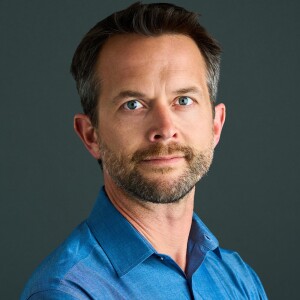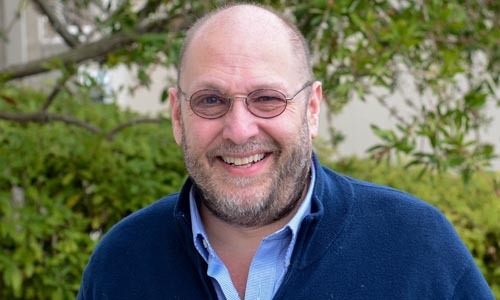
The Bio Report podcast, hosted by award-winning journalist Daniel Levine, focuses on the intersection of biotechnology with business, science, and policy.
The Bio Report podcast, hosted by award-winning journalist Daniel Levine, focuses on the intersection of biotechnology with business, science, and policy.
Episodes

Wednesday Dec 20, 2023
Transforming Healthcare with Data
Wednesday Dec 20, 2023
Wednesday Dec 20, 2023
Vik Bajaj has long lived at the intersection of physical sciences, engineering, data science, and the life sciences—first as an academic working to improve diagnostic imaging at Stanford University and later as a chief scientific officer at GRAIL and Verily. Now, as a founder and CEO of Foresite Labs, the technologist turned venture capitalist is using his experience to create new companies that are leveraging AI and other technologies to transform healthcare. We spoke to Bajaj about the changing data landscape around healthcare, the potential for technology to improve health outcomes, and what it takes for an entrepreneur to get his attention today.

Wednesday Dec 13, 2023
Realizing the Promise of IL-2 Therapies with AI
Wednesday Dec 13, 2023
Wednesday Dec 13, 2023
Interleukin-2 therapies have been seen as promising ways to treat solid tumors, but they have proven challenging because of the ability of IL-2 to both activate and suppress the immune system. Their effectiveness has been limited because of potentially toxic side effects, which have included vascular leak syndrome and pulmonary edema. Aulos Biosciences believes the AI-based approach to computational drug design used for its lead experimental therapy allows it to unlock the power of IL-2 without triggering the concerning side effects of existing therapies. We spoke to Aron Knickerbocker, president and CEO of Aulos Bioscience, about the potential for IL-2 therapies to treat solid tumors, the limits of today's IL-2 therapies, and the AI-based design behind its experimental IL-2 therapy in development.

Wednesday Dec 06, 2023
Unlocking Real-World Data to Improve Outcomes
Wednesday Dec 06, 2023
Wednesday Dec 06, 2023
Real-world data promises to provide insights that lead to better therapies, change how we treat diseases, and improve outcomes for patients. One of the limits of realizing benefits from all of the health information we are swimming in is the lack of access to high-quality data in a usable format. Verana Health has built partnerships with medical societies to provide access to exclusive, real-world data from a network of more than 20,000 clinicians. We spoke to Sujay Jadhav, CEO of Verana Health, about the potential for real-world data to improve our understanding of health, how Verana is addressing challenges these data can present, and the areas of medicine on which it is focused.

Wednesday Nov 29, 2023
A Silicon Valley Entrepreneur Investing at the Intersection of Tech and Biotech
Wednesday Nov 29, 2023
Wednesday Nov 29, 2023
Artificial intelligence promises to reshape the healthcare landscape and deliver new insights into the molecular drivers of health and wellness, provide rapid diagnoses of patients, and discover and design therapies that extend beyond human imagination. Swaroop ‘Kittu’ Kolluri, founder and managing director of Neotribe Ventures, is using his experience as a Silicon Valley entrepreneur to invest in the emerging TechBio space. We spoke to Kolluri about the state of AI, the potential of technology to transform healthcare, and Neotribe’s approach to investing.

Wednesday Nov 22, 2023
A Company Betting Its Physics-Based AI Will Fuel a Quantum Leap in Drug Discovery
Wednesday Nov 22, 2023
Wednesday Nov 22, 2023
Though many drug developers are harnessing AI to create novel chemical compounds, Iambic Therapeutic’s generative AI is leveraging quantum mechanics to get to better drugs. It says its physics-informed machine learning approach has yielded promising lead candidates with superior profiles in record time. In October, Iambic completed a $100 million series B financing round to support development of its platform and to advance multiple candidates into clinical development. We spoke to Tom Miller, co-founder and CEO of Iambic, about its AI platform,, the insights Iambic gains from using a quantum mechanics-based approach to drug discovery, and its growing pipeline of cancer therapies.

Wednesday Nov 15, 2023
Detecting Alzheimer’s Disease Early through a Blood Test
Wednesday Nov 15, 2023
Wednesday Nov 15, 2023
One of the challenges with treating Alzheimer’s disease is diagnosing patients early enough in the course of its progression to have a meaningful impact with treatments. Sunbird Bio said it can accurately detect and differentiate specific proteins that aggregate and signal the presence of Alzheimer's disease, with a simple blood draw. It said its test in development could address the growing need for more sensitive, reliable, non-invasive diagnostic tests to accelerate drug development and enhance patient care. We spoke to John McDonough, executive chair and CEO of Sunbird Bio, about its diagnostic test for Alzheimer’s disease, how it has the potential to impact treatments and outcomes for millions of patients with the condition, and how its merger with Glympse Bio is expected to push it into new markets.

Wednesday Nov 08, 2023
Addressing Supply-Chain Challenges Underlying Drug Shortages with Synthetic Biology
Wednesday Nov 08, 2023
Wednesday Nov 08, 2023
About 40 percent of all drugs in the Western world are derived from plants. But challenges with producing a reliable supply inherent with materials derived from agricultural processes can lead to drug shortages as climate events, pests, and plant diseases can affect yields. Antheia is harnessing synthetic biology to produce active pharmaceutical ingredients as an alternative to reliance on crop production. We spoke to Christina Smolke, co-founder and CEO of Antheia, about the supply-chain challenges underlying drug shortages, how the company is using synthetic biology to create a reliable supply of active pharmaceutical ingredients, and its growing pipeline of products in development.

Wednesday Nov 01, 2023
Building Better and More Affordable Vaccines
Wednesday Nov 01, 2023
Wednesday Nov 01, 2023
The COVID 19 pandemic provided a painful reminder of the global need to protect people against the threat of existing and emerging infectious diseases. Emergex Vaccines is developing fully synthetic vaccines that provide advantages over live attenuated and RNA-based vaccines. The company says its vaccines can provide long-lasting T cell immunity, are cost effective, and stable at room temperature. We spoke to Thomas Rademacher, co-founder and CEO of Emergex Vaccines, about the company’s platform technologies, the manufacturing advantages they offer, and the company’s pursuit of universal coronavirus and influenza vaccines that work across variants.

Daniel Levine
Daniel Levine is an award-winning business journalist who has reported on the life sciences, economic development, and business policy issues throughout his career. He is founder and principal of Levine Media Group, host of The Bio Report and RARECast podcasts, a senior fellow at the Center for Medicine in the Public Interest, and author of Global Genes’ annual NEXT report on emerging trends in the world of rare disease. From 2011 to 2014, he served as the lead editor and writer of Burrill & Company’s acclaimed annual book on the biotech industry. His work has appeared in numerous national publications including The New York Times, The Industry Standard, and TheStreet.com.
